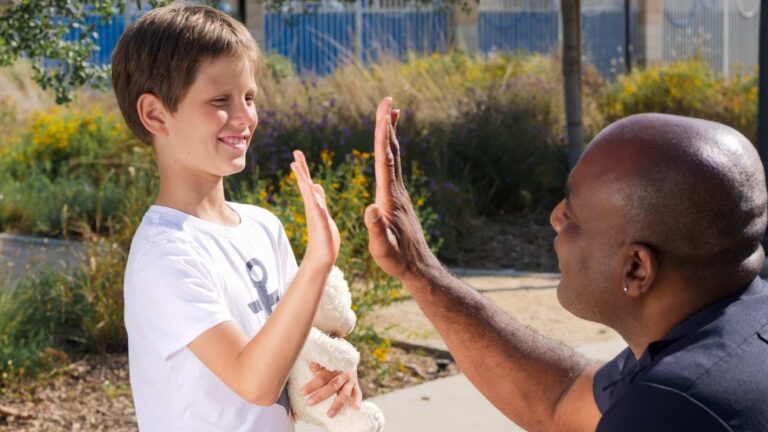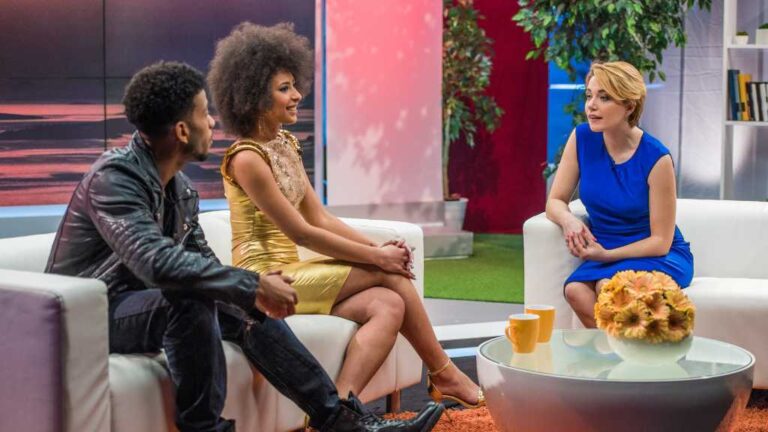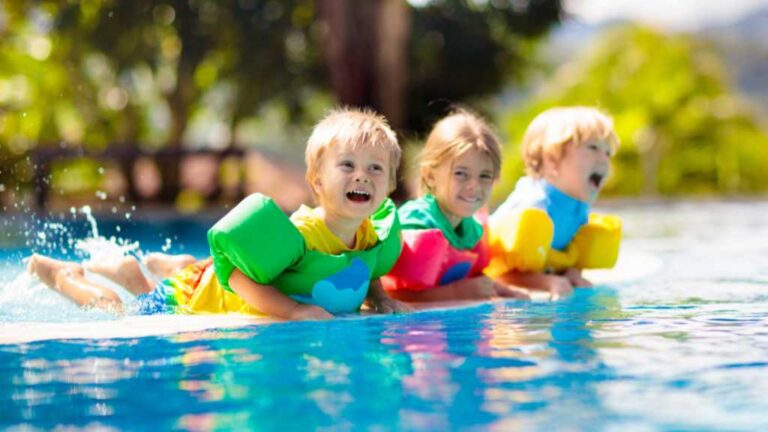Table of Contents
How Can Caregivers Help Their Children with Autism Play Sports?
Many children and teenagers with an autism spectrum disorder diagnosis (ASD) face distinct obstacles when it comes to participating in physical activities like sports. These struggles playing sports with autism can be due to common difficulties some experience living life on the spectrum.
With core ASD symptoms in mind, many find themselves questioning how caregivers can help their children with autism play sports. For many, the answer lies in taking the appropriate approach and, in many cases, including ABA therapy or Applied Behavior Analysis.
Fortunately, with some ABA support, many children with autism not only participate in sports but thrive while engaging in them! In fact, having an autism diagnosis does not have to hinder individuals with ASD from participating in fun activities like sports. Research from the National Library of Medicine demonstrates that playing sports with autism can have positive effects on children, their peers, and their families, leading to better problem-solving skills and more in the long term.
The blog by ABA Centers of Connecticut will discuss how caregivers can empower children and teenagers with autism to play sports and how ABA therapy can help throughout the process. So, please keep reading to learn more about autism and sports with us!
Click here for information about ABA Centers of Connecticut. Visit us here to read other ABA blogs and autism diagnostic resources.
Understanding Autism and Its Impact on Sports Participation
According to Autism Speaks, autism spectrum disorder is a developmental condition affecting communication, behavior, and social interactions in many with the diagnosis. Children with ASD may also struggle with sensory processing, emotional regulation, and understanding social cues, in some cases both verbal and nonverbal. Still, the degree to which autism impacts everyone is entirely different.
These differences can make it more challenging for some neurodivergent children to participate in group activities like sports than their peers. For some, this experience can feel limiting to neurodiverse families who want to provide their kids with the most regular peer engagement possible.
Recognizing that every child with autism is unique and will possess different strengths or difficulties helps many caregivers to improve their loved ones’ experiences during games. For example, some neurodivergent children will feel more motivated to play individual sports, such as swimming or running. Others may like engaging in group sports once they understand the social demands of teamwork and the fast-paced nature of competition.
The Benefits of Sports for Children with Autism
Before diving into how caregivers can help their children with autism play sports, it’s essential to understand the benefits that sports can have for those with ASD.
1. Improved Social Skills: Sports provide opportunities for children with autism to interact and engage with their peers in a structured environment. Through teamwork, communication, and following rules, they can enhance their socialization while establishing friendships.
2. Increased Physical Activity: Engaging in physical activities is not only beneficial for overall health but also helps manage sensory sensitivities in children with ASD. Through sports, ASD individuals can learn to regulate their bodies and emotions while improving motor skills.
3. Boost Self-Esteem: Children with autism may face distinct obstacles throughout their lives, but sports can provide them with a sense of accomplishment and pride they can carry for a lifetime. Seeing their progress and abilities on the field can also boost their self-esteem and confidence.
The Role of ABA in Helping Children with Autism Thrive in Sports
ABA is a scientifically proven behavioral approach that focuses on understanding and shaping behavior patterns for safer, more inclusive outcomes. ABA therapy can be highly beneficial in helping children with ASD develop the essential skills they need to succeed in sports and other physical or organized activities.
How ABA Can Support Children with Autism in Sports Include:
1. Building the Necessary Social Skillsets: Through ABA, children can learn specific social skills that will help them interact with teammates, understand goals, and communicate effectively during games.
2. Managing Sensory Sensitivities: ABA techniques such as positive reinforcement and implementing suitable accommodations can help children with autism manage sensory sensitivities that may interfere with their ability to participate in sporting events, like improving tolerance or comprehension around crowd cheering, for example.
3. Addressing Challenging Behaviors: ABA providers identify and redirect maladaptive, complex behavior patterns that may arise during sports activities, including meltdowns or non-compliance, with better coping skills to meet the ASD individual’s needs during games. These new skills help ensure that ASD players won’t feel the need to resort to difficult or dangerous behaviors.
How Caregivers Can Help Improve Experience Playing Sports with Autism
1. Start with Your Kid’s Interests: When introducing children to sports, it’s essential to start with activities that align with their interests. Consider your child’s natural talents, like running, swimming, and playing ball.
2. Provide Visual Schedules and Social Stories: Children with autism often benefit from visual aids and routines. Caregivers can create schedules or social stories that outline the objectives of playing a specific sport to help their child understand what to expect.
3. Practice at Home: Before joining a sports team, caregivers can practice basic skills and rules with their children at home, which can help reduce anxiety and increase familiarity with sports.
4. Communicate with Sports Coaches: Coaches should do their best to understand neurodiversity and how it may impact a child’s participation in sports. Caregivers should also proactively communicate any specific needs or accommodations that may be necessary for their child to participate fully and safely to limit complications.
The Best Sports for Children with Autism
While plenty of sports can be beneficial for children with autism, some may be more suitable and enjoyable than others. However, as always, please do your best to follow your child’s passions and accommodate their needs so they have access to the sports they show interest in.
Here are a few examples of sports that are generally accessible for many on the spectrum:
1. Swimming: Swimming is an outstanding individual sport that can help improve coordination, motor skills, and sensory regulation in children with autism.
2. Running or Track and Field: Running events are ideal for children who demonstrate repetitive movements or have high energy levels.
3. Martial Arts: Martial arts can teach self-control, discipline, and respect while also providing physical activity.
4. Soccer: Through team collaboration, soccer can help foster social skills, communication, and self-esteem in children with autism.
5. Gymnastics: Gymnastics can improve coordination, balance, and body awareness in some on the spectrum.
6. Yoga: Yoga promotes relaxation, mindfulness, and body awareness, making it beneficial for neurodivergent kids who may have sensory sensitivities or difficulty regulating their emotions.
Playing Sports with Autism Is Manageable, Fun, and Safe with a Bit of ABA Support!
While participating in sports may present challenges for children with autism, it is not impossible. In fact, physical activities have numerous benefits for ASD families, including a positive impact on children with autism’s overall well-being!
Fortunately, with the proper support from caregivers and the implementation of evidence-based ABA techniques, children with autism who feel passionate about sports can not only play but thrive during every game season. So, whether you play ball with your kiddo every Saturday in the backyard or they just joined an inclusive baseball team, there are vast opportunities for children with ASD to engage in physical activity!
So don’t hesitate to encourage your child with autism in their sporting endeavors. Remember, every step counts towards building a brighter future for them! So, let’s get out there!
Happy playing!
Ready to take the next step? Connect with ABA Centers of Connecticut and explore how our expert ABA services can support your ASD child’s journey through sports and more!
More About Playful Support with ABA Centers of Connecticut!
At ABA Centers of Connecticut, we provide individualized and evidence-based ABA interventions to children and teenagers with autism. Every child deserves the chance to enjoy their interests, including sports, to live life on their terms, and to feel accepted wherever they are.
Our team of ABA experts is committed to empowering children with autism through personalized programs tailored to their unique needs. We use the best ABA techniques available with ASD youth to help them develop essential skills such as communication and other daily living skills that make a massive difference in their lives.
Contact ABA Centers of Connecticut by calling us at (844) 395-0448 or via this online link to learn more about how we serve families in Fairfield and Hartford Counties.
Let’s empower our children with autism through sports together!









